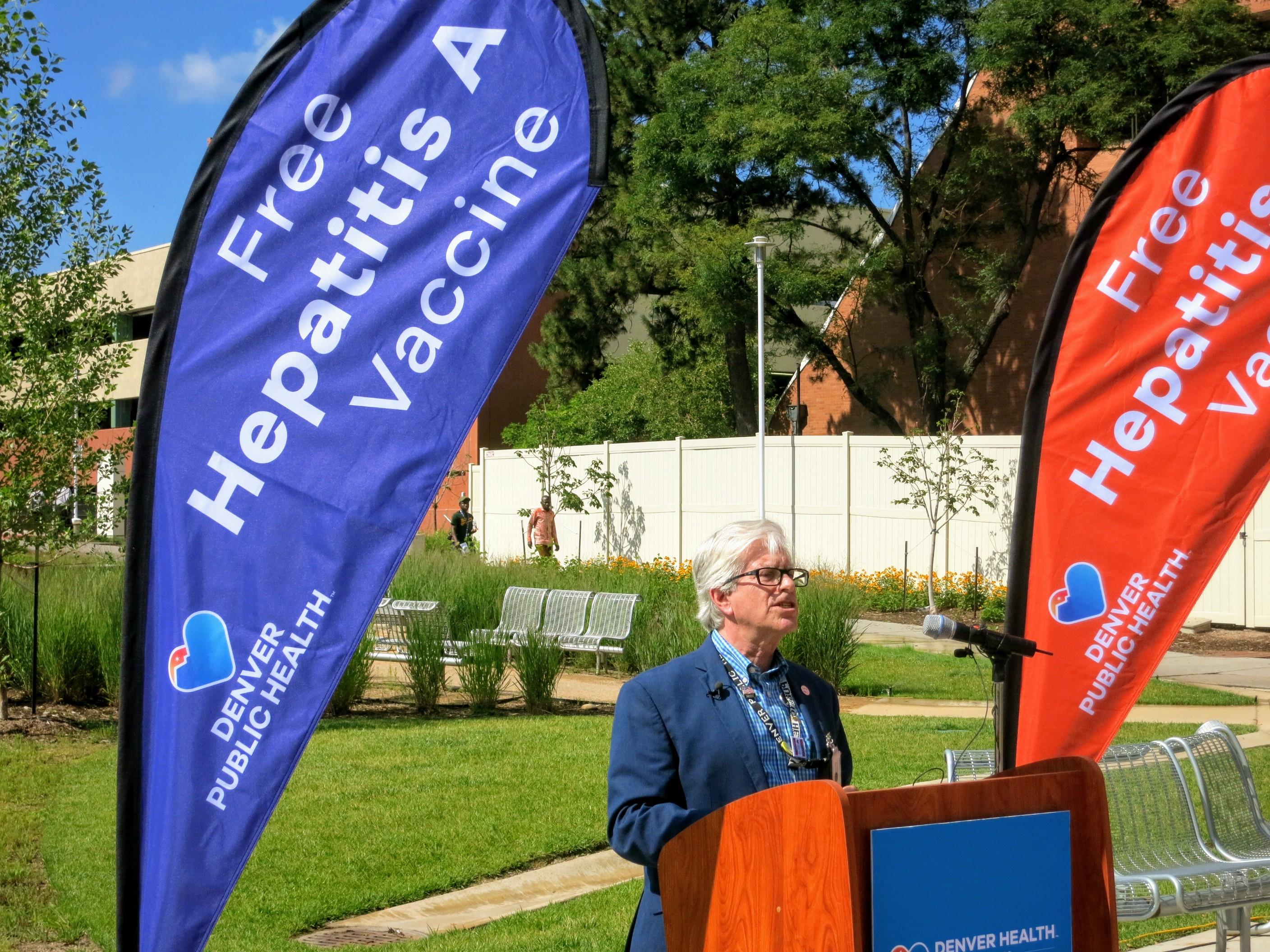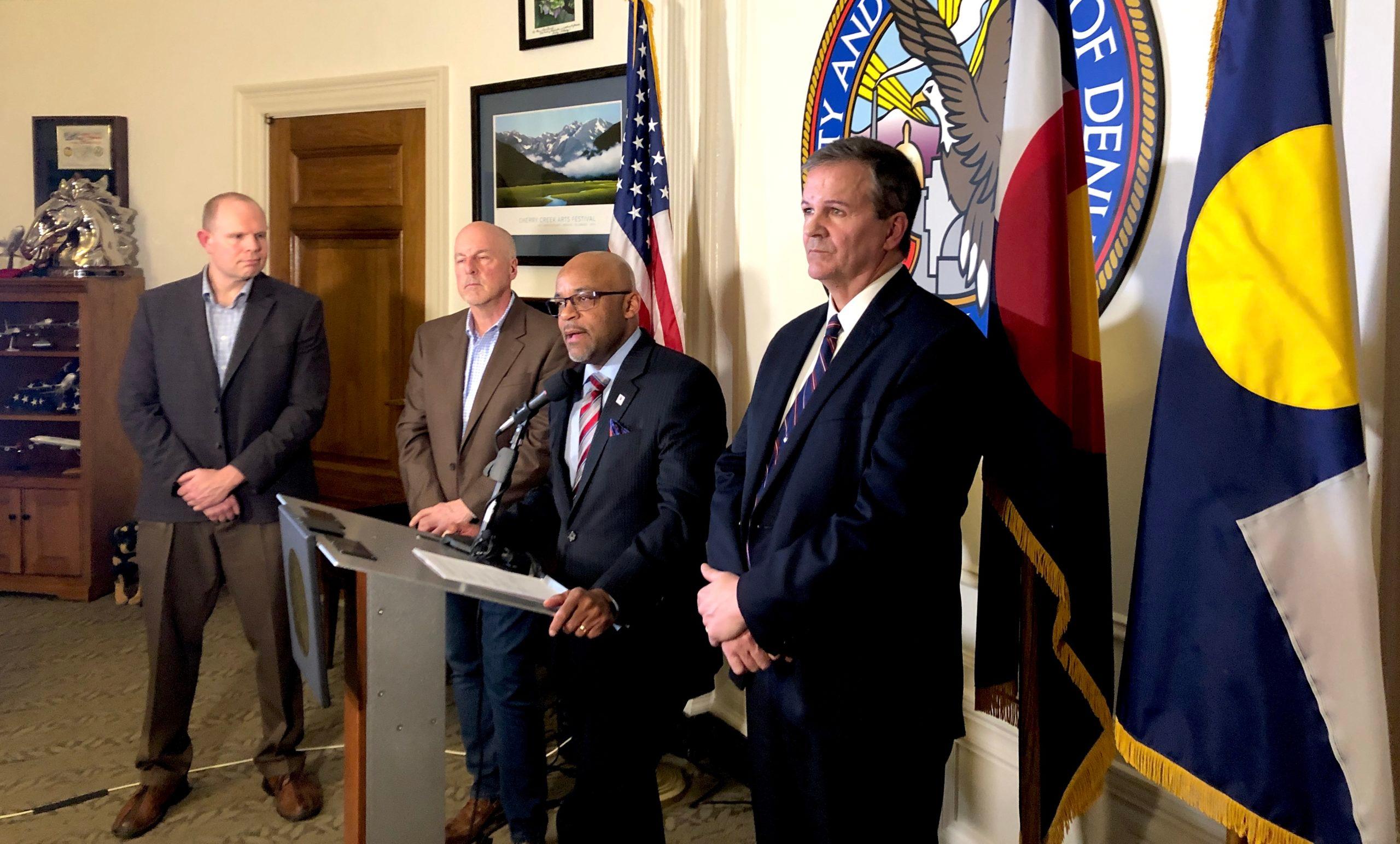Wash your hands. A lot.
That's what government officials say is the first line of defense against viral diseases such as COVID-19, the form of coronavirus that has the world on alert but has not yet been detected in Colorado.
But finding a bathroom with soap and running water isn't easy for people experiencing homelessness, who are already at higher risk of falling ill because their immune systems are likely to have been weakened by poor diets and being exposed to the elements.
"We need to provide more public facilities for folks," said Cathy Alderman, vice president of communications and public policy for the Colorado Coalition for the Homeless. "People are welcome to come into any of our facilities ... and wash your hands, get some hand sanitizer." Her nonprofit has a clinic at 2130 Stout St.
Shelters have bathrooms, but they're often only open overnight in Denver. Kristen Baluyot, who directs social services in the Denver area for the Salvation Army, said increasing hours at her nonprofit's Crossroads shelter would require more funding to pay staff to be on hand.
Baluyot said that in light of the coronavirus scare, Crossroads is stocking up on soap and toilet paper, but it has found that hand sanitizer is harder to source.
Bob McDonald, the director of the Denver Department of Public Health and Environment, said his staff is seeking out people experiencing homelessness to distribute hand sanitizer and make sure they know about the bathroom options that are available, including facilities at shelters, public toilets at either end of the 16th Street Mall, and two city-owned mobile bathroom units as well as a public health van.
McDonald stressed that COVID-19 has not yet been detected in Colorado, but said, "eventually, I think we will see some cases here."
He said a meeting is scheduled Thursday with organizations that provider shelter and other services to people experiencing homelessness, and discussing the basics of preventing the spread of COVID-19 is on the agenda. McDonald added that service providers will be told to contact public health officials if they have any questions or encounter someone with COVID-19's flu-like symptoms. Public health officials will then decide if the person should be tested for the virus.
Baluyot said if staff determined someone at Crossroads had COVID-19 symptoms, the person would be isolated in a chapel now used as an overflow area until he or she could be transferred to Denver Health.
McDonald said Denver's response to hepatitis A had provided some lessons. The hepatitis A virus, which affects the liver, spreads from the feces of an infected person via food or drink. Early symptoms of infection can feel like the flu, and more advanced symptoms include yellowish eyes and skin.
Local public health officials had been on alert since shortly after a national hepatitis A outbreak began in California in 2016. The response in Denver has included a vaccine drive that started in 2017.
The Colorado hepatitis A outbreak has seen more than 350 cases -- more than 90 of those in Denver -- and two deaths, including one in Denver. The city has placed some people recovering from hepatitis A in hotel rooms.
McDonald said that while hepatitis A has not been contained, Denver has recently seen some weeks go by without a new case, a sign the outbreak is waning. He said he hoped preparation would lead to similar results against COVID-19.
"We do still have some time here," he said.
Baluyot said Denver's response to hepatitis A was "a good effort, and I think it paid off."

COVID-19 is a respiratory illness spread by coughing or sneezing and thought to be passed on mostly through close contact. COVID-19 has no vaccine, which McDonald said made prevention even more important.
To prevent the spread of disease, experts recommend frequent hand-washing with soap and water. They also advise avoiding touching your your face, particularly your mouth, nose and eyes. McDonald added that getting vaccinated for the flu, even now, could be helpful; health care providers trying to determine if someone's symptoms were related to the flu or COVID-19 would have more to go on if they knew the person had had the flu vaccine, he said.
Public hand-washing stations were set up elsewhere in the country in response to hepatitis A, but not in Denver.
"If hand-washing is the No. 1 thing to help with the spread (of disease), (hand-washing stations) would be a huge asset to have in our community," said Baluyot.
But she said she has heard of opposition to hand-washing stations in Denver (she said she couldn't say from whom). Saying she was speaking on her own and not the Salvation Army's behalf, she said the resistance might stem from a sense that providing such services could be seen as condoning living on the streets.
The CDC says COVID-19 is thought to be more dangerous for people who have underlying health conditions. More than 100 infections have been confirmed across at least 15 American states, with nine U.S. deaths, all in Washington state. The infections are part of a global outbreak that was first detected in China and has sickened more than 92,000 people and killed some 3,100. Most cases are mild.













